AC/DC offers more of the same on hard-rocking 17th album Power Up
More brand than band, you know exactly what you’re getting with AC/DC — and what you get with Power Up is the classic 1980 line-up (bar Malcolm Young, who died in 2017).
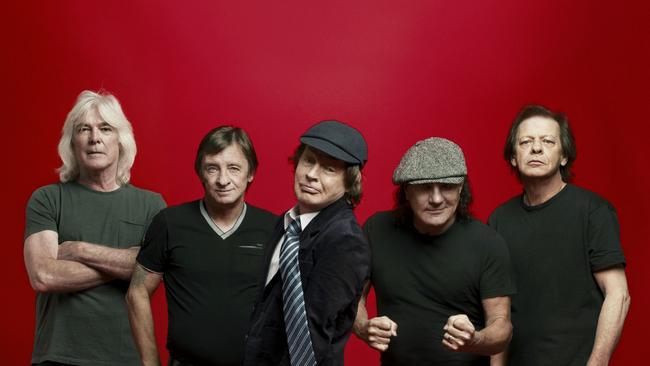
Album reviews for week of November 21, 2020:

HARD ROCK
Power Up
AC/DC
Columbia/Sony
★★★½
Everything old is new again for Australia’s most successful and enduring rock export. This album, the band’s 17th, is itself more than two years old, recorded in the northern summer of 2018. Its release was delayed until now by the pandemic, though it’s not as if the content of Power Up has a shelf life. More brand than band, you know exactly what you’re getting with AC/DC. And what you get with Power Up is the classic 1980 line-up (bar rhythm guitarist Malcolm Young, who died in 2017): brother and co-founder Angus, nephew Stevie Young in place of Malcolm, singer Brian Johnson, bassist Cliff Williams and drummer Phil Rudd. It’s like Back In Black all over again, especially as it took Malcolm’s funeral to bring them back together. Recorded in Vancouver and produced by Brendan O’Brien (who oversaw Black Ice and Rock or Bust), Power Up also marks an individual comeback. Vocalist Johnson, whose hearing issues forced him out of the band after the 2015-16 Rock or Bust tour, has had the problem rectified by technology.
But it’s the spirit of Malcolm Young that pervades Power Up. He co-wrote all 12 songs, which had been stockpiled until the band reconvened for this album, and his signature cast-iron rhythm chug drives proceedings from the outset. The four-chord intro of Realize soon settles into familiar territory: pulsing, four-square bass and drums, interlocked guitars and the banshee wail of Johnson sounding totally reinvigorated. The formula rarely deviates — has it ever? — although what sounds suspiciously like an organ fleshes out a couple of choruses. On the slightly trickier arrangements, such as those for Through the Mists of Time (channelling Cheap Trick), Witch’s Spell, System Down and Code Red, the second guitar is more counterpoint lead than underpinning rhythm. One suspects Angus played both parts in the studio. Elsewhere, it’s stock-standard AC/DC, right down to the lyrics. Apart from the usual sprinkling of double entendres and demonic metaphors, the band gets back to basics on first single Shot in the Dark: “Your mission is to party till broad daylight.” Just like old times.
Phil Stafford
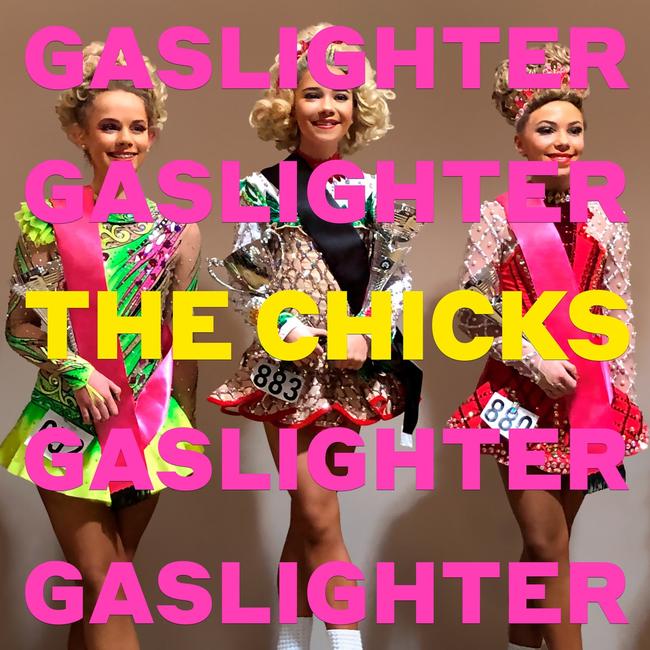
COUNTRY POP
Gaslighter
The Chicks
Columbia/Sony
★★★½
Cool trip-hop beats and merely the vaguest country twang on catchy March March suggest the evolution of the Dixie Chicks trio is Straight Outta Nashville and towards a slick, dance-pop future on the trio’s eighth album. Hence the name change. There are flavours of Florence and the Machine’s dramatic layering of instruments, beats and vocals with the underlying rawness of the female experience, the rallying cry of sisterhood, throughout Gaslighter. There also are fiddles and hand claps, so fear not if you’re looking for the Chicks of yore. “Gaslighter, denier, doin’ anything to get your ass farther,” Natalie Maines sings, recalling the controversy over her criticism of George W. Bush’s decision to invade Iraq, when the band was black-listed by multiple US networks. Producer Jack Antonoff has sculpted the Chicks’ sound into singalong odes to empowerment that prove the personal and political are never too distant.
Cat Woods
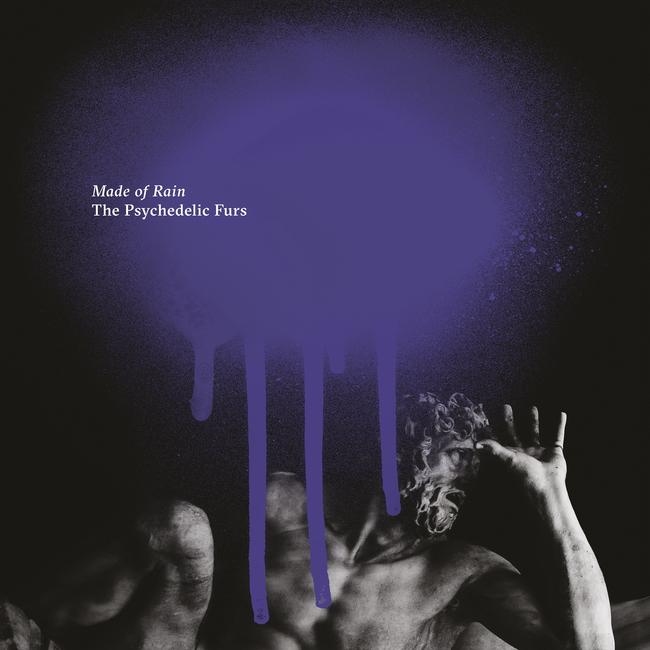
POP/ROCK
Made of Rain
The Psychedelic Furs
Cooking Vinyl
★★★½
Led by the acidic charisma of sneering vocalist Richard Butler, the Psychedelic Furs’ first album since 1991 rekindles the darkly melodramatic guitar-pop that distinguished signature songs such as Pretty in Pink and Love My Way. Rather than resorting to pat 80s flashbacks, the London band leans into brooding textures and sharp dynamic shifts, with saxophonist Mars Williams enlisted for orchestrally minded interludes as well as for menacing buzzing on The Boy That Invented Rock & Roll and a circus slant on Come All Ye Faithful. The atmosphere throughout establishes a moody backdrop for Butler’s enjoyably mocking lyrics. Don’t Believe evokes the National’s gloomy indie rock more than it does any of the Furs’ New Wave peers, while other tracks hew much closer to the angst-ridden 90s than to the synth-laden 80s. A surprisingly urgent return to form.
Doug Wallen

FOLK/COUNTRY
Blonde On The Tracks
Emma Swift
Tiny Ghost/Planet
★★★
Nashville-based Australian country singer Emma Swift has put herself well and truly in the firing line by choosing to cover songs from classic 1960s and 70s Bob Dylan albums on her cleverly named debut album. And she has upped the ante by adding a rendition of a track from the legend’s lauded 2020 waxing Rough and Rowdy Ways. Although Swift’s genteel delivery somewhat sanitises the master’s poetic lyrics, her version of I Contain Multitudes — while vapid compared with the original — just about constitutes the peak of her Blonde on the Tracks takes. A nigh 12-minute rendition of Sad Eyed Lady of the Lowlands, which drones on interminably, is the nadir. Swift’s opening rendition of Queen Jane Approximately and her later reading of Simple Twist of Fate are less soporific. The singer’s interpretations of lesser-known pieces from Dylan’s rich canon are relatively nondescript.
Tony Hillier
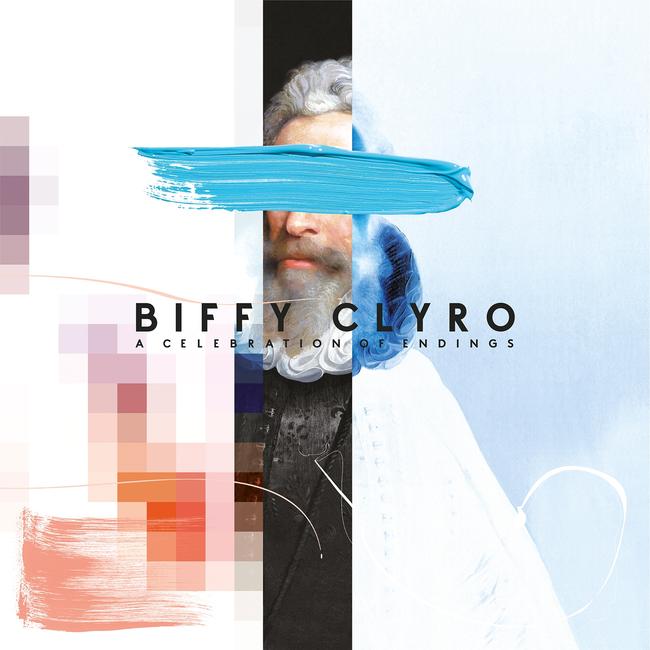
ROCK
A Celebration of Endings
Biffy Clyro
Warner
★★★★½
Unpredictability has been a staple of Biffy Clyro across the past 18 years and eight albums, each of which has carried a radical, offbeat sound, with songs often changing tempo multiple times before the track is out. On A Celebration of Endings, the Scottish trio continues to deliver its inventive brand of alternative rock. A couple of songs (Instant History, Tiny Indoor Fireworks) on this 11-track album carry some of the anthemic sound that has become part of the band’s mix more recently, but most hark back to the wildly jagged songs Biffy released in the early 2000s. Cases in point: Weird Leisure, End Of and Cop Syrup. Keeping things fresh, the band introduces synthesiser sounds alongside the usual mix of heavy guitar, melodic choruses and frontman Simon Neil’s occasional screams, while orchestral arrangements are a welcome reappearance, too.
Charlie Peel
Album reviews for week of November 14, 2020:

ALTERNATIVE POP
Child in Reverse
Kate Miller-Heidke
EMI Australia
In the six years since Kate Miller-Heidke’s previous album, the classically trained Brisbane singer-songwriter has advanced every facet of her career. She represented Australia in Eurovision, finished second place in The Masked Singer and co-wrote the music and lyrics for the Muriel’s Wedding musical, among other triumphs of stage and screen. If pop music can seem somewhat frivolous by comparison, Miller-Heidke packs Child in Reverse with artistry and emotion, fully investing herself in potent self-contained dramas lasting under four minutes at a time. Anyone who has heard her sing will remember her gymnastic vocal abilities (whether in opera or other settings), but it’s even more impressive to witness those employed with such precision and restraint. Opening the record with the joyful release of pure harmonising, Deluded is a bubbly invitation to “get deluded with me” over hiccupping beats courtesy of producer Evan Klar, who’s responsible for much of the album’s instrumentation.
Miller-Heidke co-wrote seven songs with Klar and Hailey Collier (sometimes with additional collaborators as well), and that core creative partnership introduces the balance of playful hooks, streamlined production, punchy emotional shorthand and incredibly agile singing that allows these songs to hit their mark and exit with reliable efficiency. There’s enough variety to keep things from feeling formulaic, though: Little Roots, Little Shoots is flamboyantly gothic, while Born Lucky and Twelve Year Old Me wield intense inner turbulence to offset the bright chirpiness inherent in Miller-Heidke’s singing. Co-written with her partner Keir Nuttall, People Pleaser is one of several tracks exploring the value and burden alike of self-affirmation. These songs closely mingle light and dark that way, never tipping completely over into either extreme. Even the heavy (and autobiographical) subject matter of Child of Divorce is contrasted with the album’s lightest melodies and brightest message of hope, making it feel all the more rounded and true.
Doug Wallen
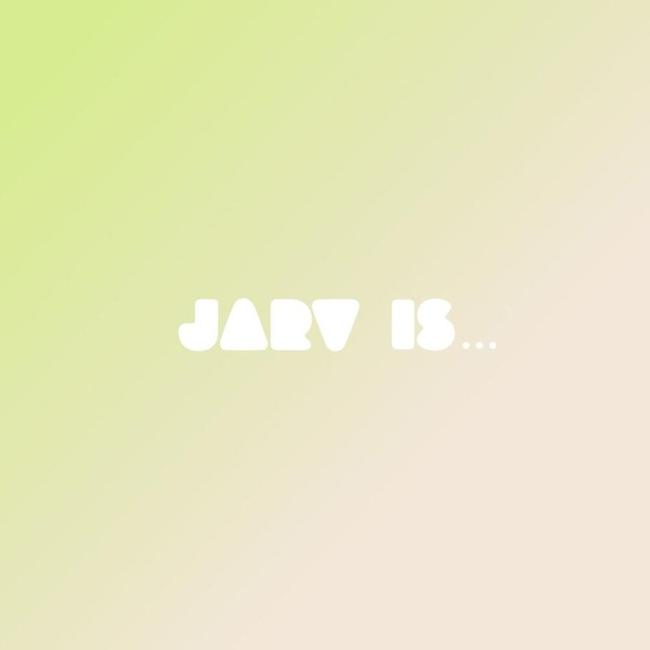
SYNTH POP
Beyond The Pale
JARV IS
Rough Trade/Remote Control
Former Pulp frontman Jarvis Cocker has channelled his inner louche playboy effectively into the first track, a 1980s synth-pop tune evocative of 1981 Visage classic Fade to Grey. Cocker’s velvet flared frontman vibe in the 90s was all dishevelled glam coolness. As frontman of this six-piece band he’s mellower, but barely. “Must I develop? Must I mature? Must I evolve? Must I endure?” his northern baritone croons before a background choir answers the inevitable (yes, yes, yes). House beats meet discordant synth stabs on a tribe of random instruments, adding requisite oddness and ironic flourishes as Cocker recalls mushroom-fuelled raves in the 80s. There are elements of euphoric house music, disco and percussive funk. A little bit cabaret, a little bit post-rave sentimental while popping the champagne, Cocker and co deliver the ultimate domestic disco.
Cat Woods

ROCK
Whoosh!
Deep Purple
earMUSIC
In 1970, the planets aligned for Deep Purple. Its breakthrough album, In Rock, set in stone the English outfit’s much-lauded Mark II line-up, of which three survivors remain. Whoosh!, its third successive album under vaunted Canadian producer Bob Ezrin, confirms not much has changed in 50 years. Keyboardist Don Airey, who replaced founding member Jon Lord in 2002, and American fusion guitarist Steve Morse, who joined in 1994, are the “newbies” in a band that sticks fast to the Mark II formula: big riffs, flashy (albeit shorter) solos, and the ever-reliable rhythm section of Ian Paice and Roger Glover. Their Mark II acolyte Ian Gillan is vocally undiminished though at 75 less inclined to unleash his patented scream. His lyrics are also on point (loosely themed around climate change, existential angst and the planet’s future), though there’s still the odd reference to “getting trashed” and “being bad”. Ah, rock ’n’ roll …
Phil Stafford
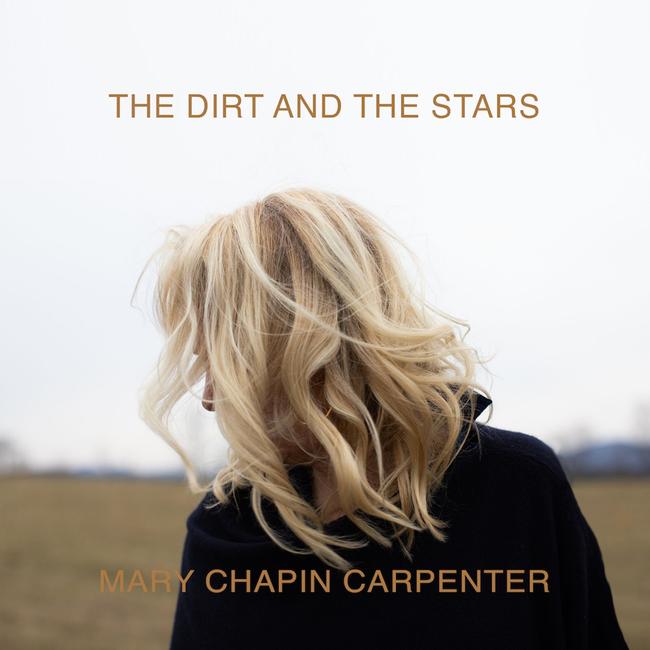
POP/COUNTRY
The Dirt and The Stars
Mary Chapin Carpenter
Thirty Tigers/Cooking Vinyl
She may have sold more than 14 million records and snared five Grammys but Mary Chapin Carpenter’s latest studio album is a tad trite, even if her treatises on life seem presciently timely. Although mercifully free of country music saccharin, save for a maudlin song about an old Martin guitar, too many of the 11 tracks suffer from a surfeit of padding and a paucity of punch. The nearly eight-minute closing title track is a notable exception, thanks to superior verses and a magnificent electric guitar solo that brings the song and the set to a thrilling climax. Ditto the equally arresting American Stooge, in which the band sustains a groove worthy of JJ Cale. To her credit, the experienced wordsmith avoids piling on the pathos, balancing songs about adversity and attrition with others that emphasise the power of positivity and optimism.
Tony Hillier
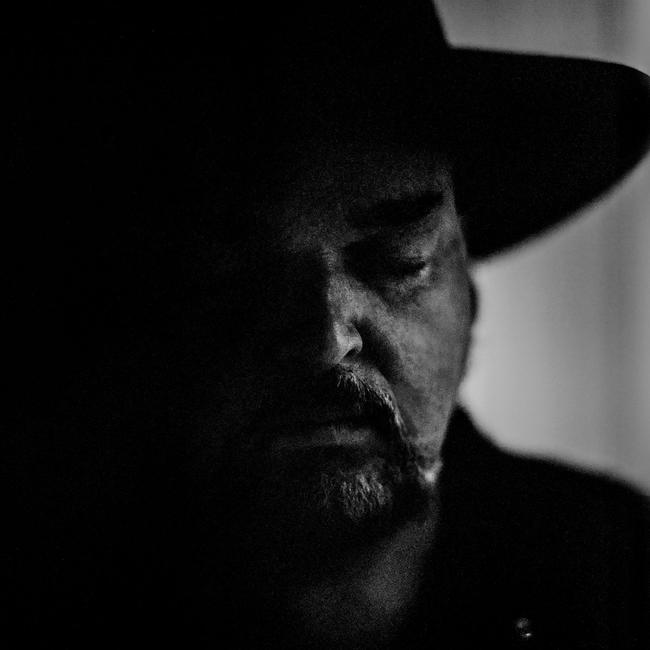
ALTERNATIVE ROCK
Hum
Alain Johannes
Liberator/Ipecac
Chilean-American guitarist Alain Johannes has given his skills to some of the biggest rock acts of the past decade, including Queens of the Stone Age, PJ Harvey and Them Crooked Vultures. His third album, Hum, breathes desert air, sending reverberations into the vast skies, carrying the wind of melancholy memories in the sweetly hoary voice of a man who has lived fully and observed everything. His melodic mastery spans Latin folk, acoustic balladry, rock and soulful psychedelia. There is a sacredness to the sound of finger-picked guitar with Johannes’s intimate voice sounding so close and clear, and the transcendent guitar influences that span Mexican mariachi through to Indian ragas. Hallowed Bones sounds like a snake euphorically shaking free of its skin. Like a howl into the Mojave Desert, Johannes manages to channel desperation and beauty into atmospheric compositions masterfully.
Cat Woods
Artist playlist for week of November 14, 2020: Alex Gow aka Perfect Moment, singer-songwriter
Five songs on high rotation
01. December The Waterboys
Waterboys sounding like a melancholy Byrds with drum machine and wandering 12-string guitar.
02. The Call Up The Clash
Anti-war groove with glockenspiel. Winner.
03. Serve This Royalty Cody Chesnutt
A beautiful and powerful song with a horn arrangement for the ages.
04. Tinseltown in the Rain The Blue Nile
New Wave groove and heart from the cult Scottish group.
05. Sexuality Billy Bragg
Co-written by Johnny Marr and you can hear it. Love the sense of adolescent excitement those frenetic acoustic guitars dish up.
Album reviews for week of November 7, 2020:
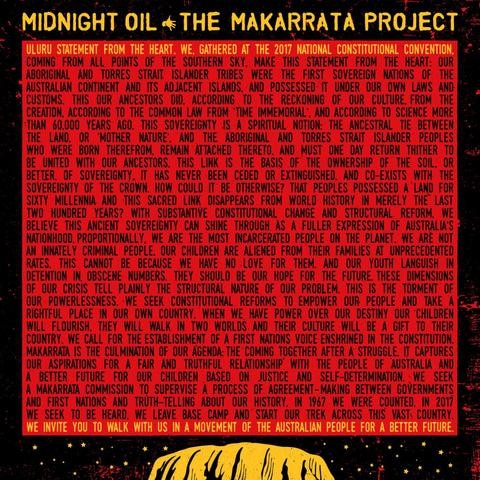
ROCK
The Makarrata Project
Midnight Oil
Sony Music Australia
There’s a common thread linking the broad diversity of material on The Makarrata Project, Midnight Oil’s first studio outing in 18 years. From sledgehammer rock to ethereal atmospherics, spoken word to celebratory entreaty, the mini-album’s seven tracks show sides of the band both familiar and unexpected, yet the message is consistent: black-white reconciliation is an ongoing process and we’re still a long way from achieving it. As opening track First Nation puts it in a familiar Oils refrain, “We’re waiting. Still waiting.” Over Bones Hillman’s throbbing Mack truck of a bass line that would do Hunters & Collectors proud, Peter Garrett exhorts both sides to “sit down and talk about appropriation … compensation … reconciliation”. First single Gadigal Land, with its relentless AC/DC meets the Who rhythm guitar attack, prosecutes the Indigenous case before guest vocalist Dan Sultan’s anguished cry: “Every day since the day you came is a day of rage.”
It segues neatly into Change the Date, again featuring Sultan, along with the ghostly, disembodied voice of Gurrumul Yunupingu, in an impassioned plea to rethink Australia Day. Next, Wergaia/Wemba Wemba woman Alice Skye takes the lead on the caustic Terror Australia, wherein Garrett’s lyric cautions how “you can’t talk about the future if you’re running from the past”. Both Desert Man, Desert Woman, co-written by Garrett with outback poet and Pitjantjatjara man Frank Yamma, and Wind in My Head, a song from last year’s Tjungu collaboration between former Warumpi Bandmates Neil Murray and Sammy Butcher, tell spiritual stories of removal and ancient climate change. They set the scene for the Uluru Statement From the Heart, a recitation of the original 2017 speech alternating the voices of Indigenous leading lights Pat Anderson, Stan Grant, Troy Cassar-Daley, Adam Goodes and Ursula Yovich. Cassar-Daley reappears on closing song Come on Down, an apt addendum and a plea for community consultation: “Get off those little screens / And find out what it all means / Gather round the campfire / The campfire of humankind.”
Phil Stafford
–
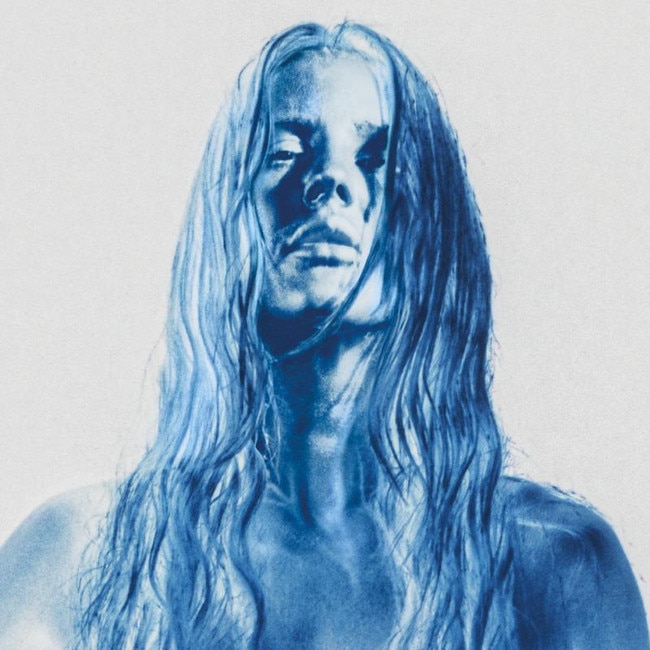
DANCE/POP
Brightest Blue
Ellie Goulding
Universal
This is a dynamic, confessional pop release from a British singer who sometimes has been put in the collaborator basket or overlooked for rebellious cohorts such as Miley Cyrus and Halsey. Ellie Goulding’s fourth album, Brightest Blue, rides a down-tempo beat wherein vocal samples unobtrusively add harmonic resonance to her signature childlike, nasal vocals. Diplo’s softened drum and bass percussive foundation on Close to Me and the addition of Swae Lee results in a great pop-meets-hip-hop match. Cyan resonates with electronic organ and gospel elements, while Flux is a heartfelt, raw ballad over a simple pattern of piano chords. This is an album of heartbreak, of the beauty to be found in what’s left behind. The catchy dubstep diamond of Hate Me with now-deceased Juice WRLD has been a radio favourite. Hopefully it lures listeners to one of 2020’s best pop releases.
Cat Woods
–

INDIE POP
Like Nirvana
Cub Sport
Cub Sport Records/Believe
Like Nirvana, the fourth album from Brisbane pop darlings Cub Sport is boldly experimental and hauntingly beautiful. It is the quartet’s furthest push away from the glittering, catchy pop that first launched the band on to national radio in 2012 and a complete embrace of the grungier tones hinted at on its self-titled release last year. After a dreamy piano interlude, second track Confessions is a heavy introduction to the band’s changing sonic landscape, with intense static vocal distortion and fuzzing guitars. My Dear (Can I Tell You My Greatest Fears) is stunningly eerie and highlights lead singer Tim Nelson’s standout vocals, which have been a pleasing constant throughout the band’s history. This album is an intriguing, complex and emotional listen that constantly surprises with spooky undertones and unpredictable melodies that demand the listener’s undivided attention.
Emily Ritchie
–

CLASSICAL
Voices
Max Richter
Decca
German-British composer Max Richter has spent the best part of a decade creating his magnum opus based on the UN Declaration of Human Rights. Beginning with the voice of its co-author Eleanor Roosevelt, a collation of other voices intones those mother’s-milk pieties in several languages. They drive the 10 short movements, each between two and 11 minutes in duration. It’s disappointing that in his honeyed homilies Richter’s music remains as background, relying heavily on thick carpets of lower string sonorities, crooning choirs and the occasional dash of keyboard music, from shards of Beethoven’s Moonlight to Satie, Arvo Part and Philip Glass. Across 54 minutes, Richter occasionally touches on brooding Hans Zimmer-like scores, but he conveys no sense of variety, tension or momentum. Barely able to escape the text or approach its nobility, this music remains earthbound and tedious.
Vincent Plush
–

INDIE FOLK/ROCK
Stardust Blues
Husky
Ditto Music
The fourth album from Husky follows a man’s 24-hour odyssey through Melbourne, including his search for meaning. We hear him encounter friends and lovers, we delve into his memories and dreams, and this internal monologue drifts across 12 tracks from Cut Myself Loose to My Darlin Ghost. Husky Gawenda’s dreamy tones make the journey an easy ride, keeping the instrumentation simple and gentle in tunes such as Papier-mache Eyes so his voice can shine. This is a return to Husky’s folk roots after exploring synth sounds with 2017’s Punchbuzz, inspired by a year of living in Berlin. Stardust Blues is a simple album, but that doesn’t mean it lacks depth. The tender storytelling across these songs creates a lush and comforting journey through a Melbourne day in a simpler time, when looking towards the sky and seeing hope in the stars was an easier concept to grasp.
Sarah Howells
–
Andrew McMillen’s Middle Eight column for week of November 7, 2020:

While writing last week’s cover story on Angus Young, the last man standing in the world-conquering Sydney-born rock band AC/DC, I began reading a highly entertaining book called The Youngs: The Brothers Who Built AC/DC, by Jesse Fink. Published in 2013 and revised in 2017, it’s a cracking read, in part because Fink decides to set himself apart from pretty much every other music biographer I’ve read by personally attacking most other authors who decided to write a book on the band before him.
“Retelling the already-told story is not what this book is about,” Fink writes near the beginning. “Bigger is not necessarily better. I didn’t want to relentlessly plunder old music magazines for second-hand quotes to fill pages or go over old ground with people who have been interviewed already ad nauseam or those who were sick of talking and would only open up under sufferance. Nothing is more dull, and so many books written about AC/DC have been just that.”
Fink structures his book around nine of the band’s songs — from It’s A Long Way to the Top (1975) to Thunderstruck (1990) — as well as a couple by the Easybeats (Good Times, 1968) and Stevie Wright (Evie, 1974) to contextualise the crucial early relationship between co-founders Malcolm and Angus Young and their older brother, George. The author reckons that Thunderstruck was the last great song the band ever released: “Like The Rolling Stones, AC/DC in the 21st century is more brand than band,” he writes dismissively in the closing pages.
For me, the major musical revelation of reading The Youngs is Fink’s certainty that the band’s best album is Powerage, released in 1978 and the second last one to feature singer Bon Scott before he died in 1980. Powerage contains none of the band’s major singles or stadium-friendly anthems, although tracks such as Riff Raff, Rock ’n’ Roll Damnation and Sin City featured in its last world tour in 2016. Crucially, Fink interviews the album’s producer, Mark Opitz, who pinpoints precisely how the Young brothers achieved their peerless guitar sound in the studio.
“Malcolm has got his Gretsch Firebird with supersonic pickups; he’s got it on full volume as normal, so he’s able to hit the strings really lightly but get a big sound so it doesn’t overcompress, because he’s hitting the strings lighter and the pickups aren’t overloading,” Opitz told Fink. “And the Gretsch pickups are known for being louder. It just so happens that AC/DC’s combination of [Angus’s] Gibson guitar with Gibson pickups and the Gretsch guitar with Gretsch pickups is the perfect combination. The other one’s got what the other one hasn’t.”
mcmillena@theaustralian.com.au
Album reviews for week of October 31, 2020:
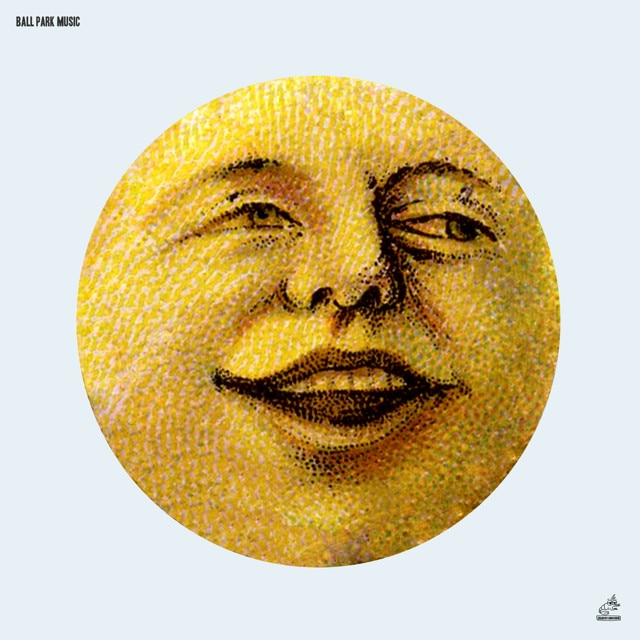
INDIE POP
Ball Park Music
Ball Park Music
Prawn Records
The sixth release from Brisbane indie pop-rockers Ball Park Music is aptly self-titled as it’s a triumphant celebration of who the band is and what they do best. The 11 slickly produced tracks are a culmination of the quintet’s decade-long sonic evolution, coupled with its signature, unashamedly Aussie sentimentality. Having been entirely self-produced and released on its own label, Prawn Records, this album is as authentically ‘Ball Park’ as we’ve ever seen. The album oscillates between the psychedelic undertones of 2016’s Every Night the Same Dream and the indie-pop stylings of 2018’s Good Mood, and the result is a buzzing, cohesive release that both pulls at the heartstrings and inspires a boogie. Spark Up kicks the album off with two seemingly opposing sounds — organ-like keyboard and jungle drums — before launching into a funky synth melody accompanied by gritty guitars that exude swagger. Staccato accents and syncopation on Bedroom heightens its sense of urgency, timelessness and claustrophobia as frontman Sam Cromack sings about having spent way too much time inside.
Cherub is a standout, starting with sweet acoustic guitar and beautiful harmonies from bassist Jen Boyce before building to a rousing crescendo; a satisfying slow build is yet another stylistic staple. Head Like A Sieve is reminiscent of the best that Britpop had to offer, while part three of the Bad Taste Blues trilogy (which began on 2012’s Museum) is a sweetly sombre throwback. Day & Age simmers with impressive rhythm guitar and a section of dizzying vocal effects and echoes, a sound that’s replicated throughout the album. A pleasing constant is the group’s smart lyrical content, which has always managed to capture the humour, restlessness and curiosity of their generation. Ball Park is the kind of band whose music is deeply entrenched in the formative years of many fans, and this release is both nostalgically reminiscent of that youthful energy while exuding a level of maturity that had only previously been hinted at. This maturity is exemplified on album closer Turning Zero, a stunning, lullaby-esque ode to new parenthood that fades out on a goosebump-inducing high-note delicately sung by Boyce. It’s a gorgeous climax to a superb release.
Emily Ritchie
–
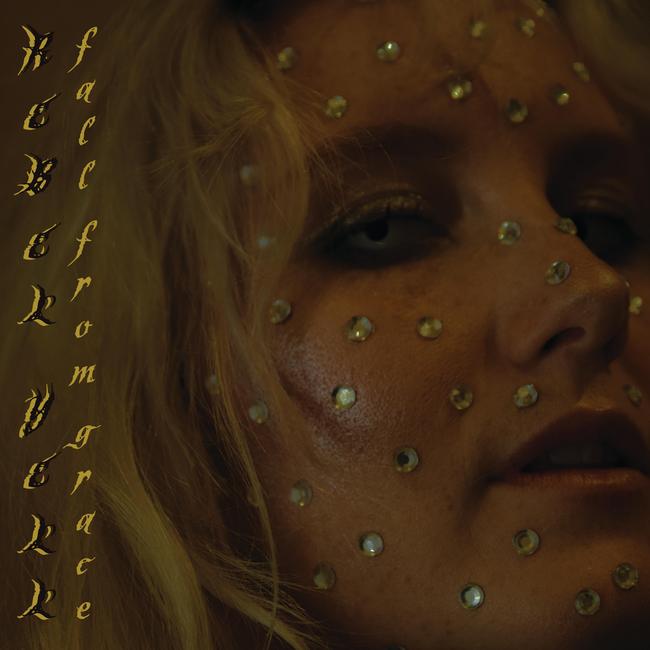
ELECTRONIC POP
Fall From Grace
Rebel Yell
Rice Is Nice
Grace Stevenson, aka Rebel Yell, meshes spoken word with industrial noise on opener Incredible Heat, while the following tracks see her pumping a techno beat under layers of steely percussion and robotic voice samples. A battery of synthesisers whirl into a frenzy of layered noise on every track as Stevenson’s disembodied voice chants one-liners on Action, Saving Grace and Orbit. This work has roots in post-punk acts such as Kraftwerk and Ladytron; it is the sound of a 20-year-old finding dusty electro records and having her mind blown. For everyone who lived through Felix Da Housecat, Carl Cox, Green Velvet and house-heavy clubs in the 2000s, this is a loving tribute — but nothing extraordinary.
Cat Woods
–
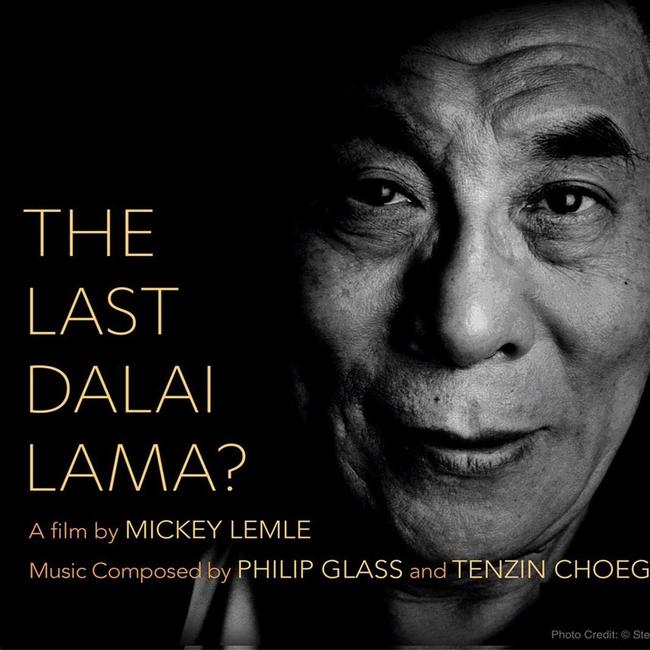
CLASSICAL
The Last Dalai Lama?
Philip Glass and Tenzin Choegyal
Orange Mountain Music
This is the soundtrack of Mickey Lemle’s 2016 film The Last Dalai Lama, an 82-minute montage of the venerable Tibetan leader as he enters his 80th year. Its score was created by an unlikely duo, Philip Glass, the minimalist superstar, then also 80 years old, and a modest Tibetan musician Tenzin Choegyal, a beloved mainstay of Brisbane’s music scene. That seeming incongruity is perfectly congruous: Glass’s mesmeric patterns are a perfect backdrop for the simple folk-based melodies of Tenzin, his sweetly rough-hewn voice supported by traditional instruments. Overall, these dozen short tracks instil a kind of spiritual oneness. His Holiness would be pleased.
Vincent Plush
–
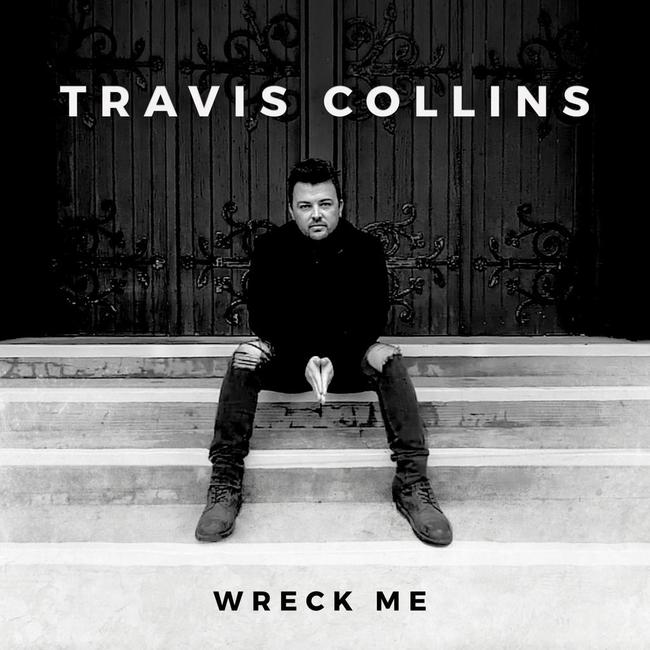
COUNTRY
Wreck Me
Travis Collins
ABC Music
On paper, Travis Collins is the ideal Australian country star: an impeccable work ethic, plus all the makings of a top bloke, not least of all for being an R U OK? Day ambassador. Ironically enough, the only real issue lies in the music itself — which, as eighth album Wreck Me demonstrates, has Keith Urban-esque tendencies of being more Nashville than Tamworth. Schlocky production and processed beats completely derail Damn Girl, while Girl Outta The Country is so unoriginal that it literally takes its sentiment verbatim from a 2003 Brooks & Dunn single. It’s especially disappointing given that Collins is clearly capable of making charming country-pop when he puts his mind to it.
David James Young
–

ELECTRONIC POP
Mydata
Katie Dey
Run For Cover
Mapping an intimate realm of heightened emotion, Katie Dey’s music feels ideal for isolation. The Melbourne singer/composer’s fourth album sees her quivering voice distorted and contorted across kaleidoscopic future-pop ballads, ranging in approach from soft, blossoming layers to harsh, juddering fragments. Such constant flux is an apt backdrop for her lyrics, which dissect an extended online romance to explore the erosion of data and feelings alike. Stretching synth strings and keyboard melodies like taffy on opener Darkness, Dey revels in digitally scarred singing and a dramatically noisy guitar solo on closer Data, finding genuine catharsis in seismic sonic traumas.
Doug Wallen
–

COUNTRY/ROCK
That’s How Rumors Get Started
Margo Price
Loma Vista Recordings
Whether liberating her fierce spirit in a boot-stomping country-rock song or delivering her raw, Southern fried vocals in heartbreaking ballads, US singer-songwriter Margo Price sounds empowered and candidly free. Stevie Nicks and Dolly Parton have sprinkled their stardust over the steady, soft-rock percussion of twangy Gone To Stay and Stone Me, while there are echoes of Fleetwood Mac in the mix here. Album No 3 has enabled Price to take full creative control of her art while again working with blues/country songwriter Sturgill Simpson. This collection picks you up in its ute, hands you a beer and takes you on an emotive trip into the soul of a mother, artist and lover.
Cat Woods
Album reviews for week of October 24, 2020:
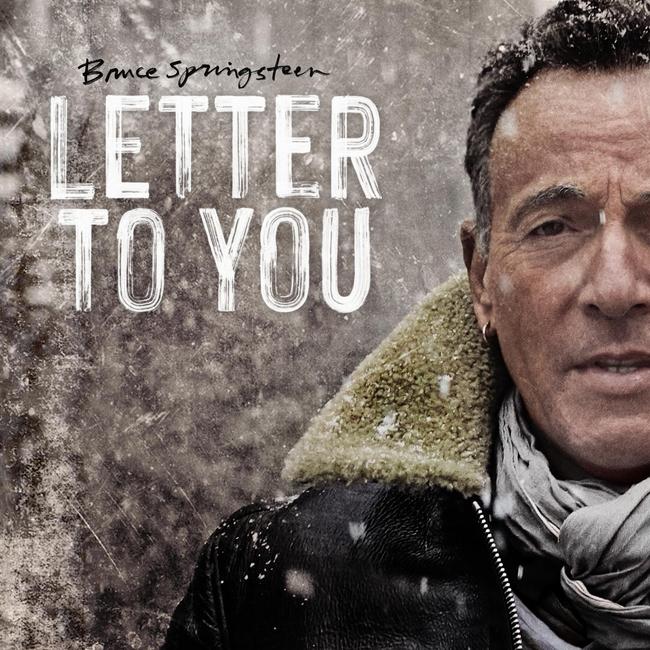
ROCK
Letter To You
Bruce Springsteen
Columbia/Sony
A year into his eighth decade, might the finish line be in sight for Bruce Springsteen? As he sings on Burnin’ Train, track three of his 20th studio album, “time is my hunter”; but there’s little to suggest anywhere else on Letter To You that Springsteen is the prey. Reunited with the E Street Band for the first time in the studio since 2014’s odds-and-ends collection High Hopes, the seemingly ageless troubadour follows up last year’s refreshing diversion into ’60s orchestral pop, Western Stars, with a reassuring reversion to rock ’n’ roll form. Recorded live in his New Jersey home studio over just four wintry days last November, Letter To You represents the first time since 1984’s Born In The USA that Springsteen and band have performed direct to tape, excluding live albums of course. With the exception of opener One Minute You’re Here, which sounds like an out-take from Western Stars, it’s all utterly predictable: familiar chord progressions, selfless ensemble playing, deftly compact arrangements.
Two of three songs dating back to the ’70s betray Springsteen’s debt to Bob Dylan, “the brother I never had”, while two more doff their caps to the Jersey rocker’s first “real band”, the Castiles, which he joined as a 16-year-old guitarist in 1965. One of these is Last Man Standing, a reflection on mortality if ever there was, as Springsteen realises he’s the only surviving Castile: “You pack your guitar and have one last beer / With just the ringing in your ears.” The other is Song For Orphans, addressed to “those nameless, questless renegade brats who live their lives in songs”. Surprisingly, only one couplet could be seen as a comment on the parlous state of the union: “The criminal clown has stolen the throne / He steals what he can never own” (House of a Thousand Guitars). And while Rainmaker concerns a conman who promises farmers he’ll break the drought (“Sometimes folks need to believe in something so bad, they’ll hire a rainmaker”), it was written prior to the ascent of Trump. For now, Springsteen’s at his best eulogising the past, as on Power of Prayer: “Last call, the bouncer shuts the door / This Magic Moment drifts across the floor / As Ben E. King’s voice fills the air / Baby, that’s the power of prayer.”
Phil Stafford
–
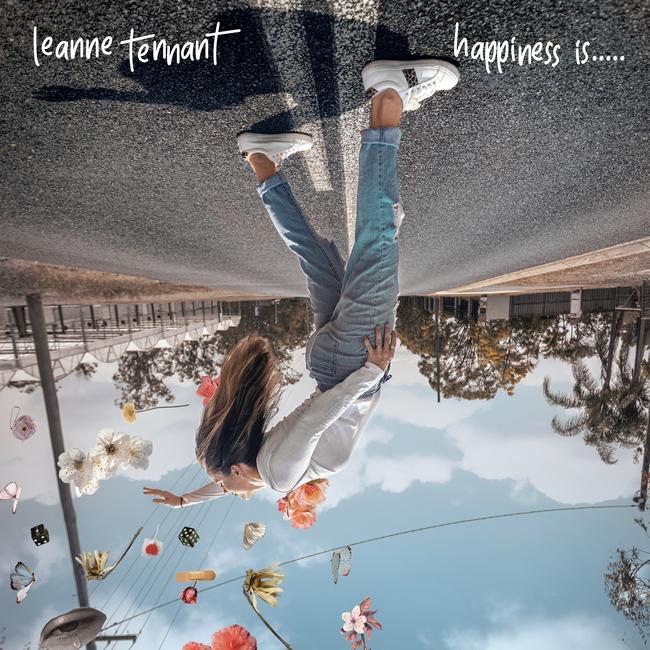
INDIE POP
Happiness Is…
Leanne Tennant
Independent
Cairns-based singer-songwriter Leanne Tennant has a pared-back, genre-defying sound that takes in synth pop, country and folk. Each of these streams easily flows towards the distant sea: her voice is a rich lullaby upon a steady bassline, with enough changes in timing and tone to keep you curious about where she’ll go from track to track. Synth handclaps rap out a steady beat as Tennant pleads with a lover who has gone “ice cold” on Cherry Cola, fairly fizzing with ‘60s girl-band groove. The complementary instrumental arrangements never threaten to overpower the beauty of her vocals, while the slowly struck tambourine in Call On Me is the loveliest way to break your own heart.
Cat Woods
–

INDIE POP
Recover
The Naked and Famous
Island
An album full of slick, danceable songs marks the fourth release from this New Zealand duo. Throughout the recovery-themed record, there is talk of the impossibility of replacing losses in life, held against permanent optimism: “But I regain myself and recover.” Originally a quartet, The Naked and Famous have been part of the Australian indie ecosystem for a decade. Album No 4 continues the optimism and shiny indie pop of past releases. While the record is at times monotonous, what’s more off-putting is the polish. The duo has simply lost personality: while its 2010 debut Passive Me, Aggressive You was crunchy, heartening and undeniably captivating, Recover have could come from anyone.
Tiarney Miekus
–
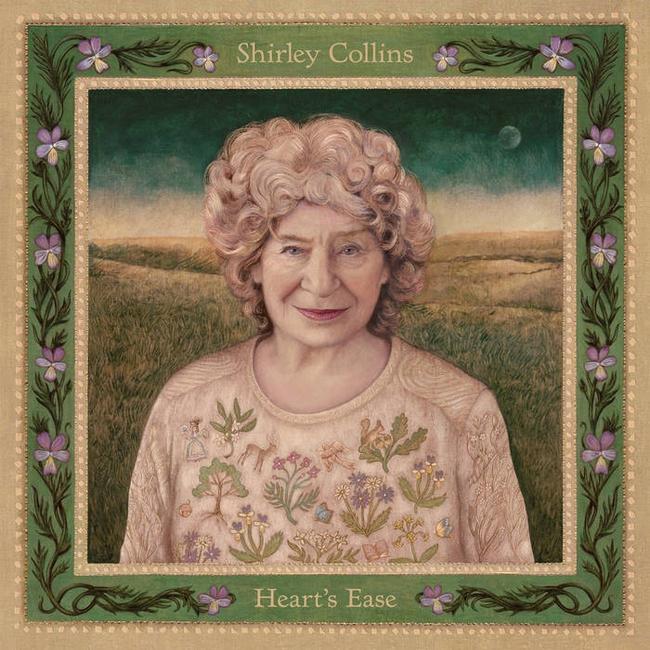
FOLK
Heart’s Ease
Shirley Collins
Domino Records
Shirley Collins took 38 years to make her 2016 comeback album, Lodestar, but just four years to create its follow-up. The British singer has forged a long career singing traditional songs and bringing ancient stories to life with her emotive, weathered voice. Here, Collins reunites with multi-instrumentalist Ian Kearey, who arranged and produced Lodestar. The two work exceptionally well together, with Keary’s melodic turns perfectly complementing Collins’s gentle, plain-spoken vocals. It should be noted that at 85 years old, Collins’s voice has held up exceptionally well. While the album follows familiar sonic patterns, it is a welcome addition to a celebrated body of work.
David James Young
–
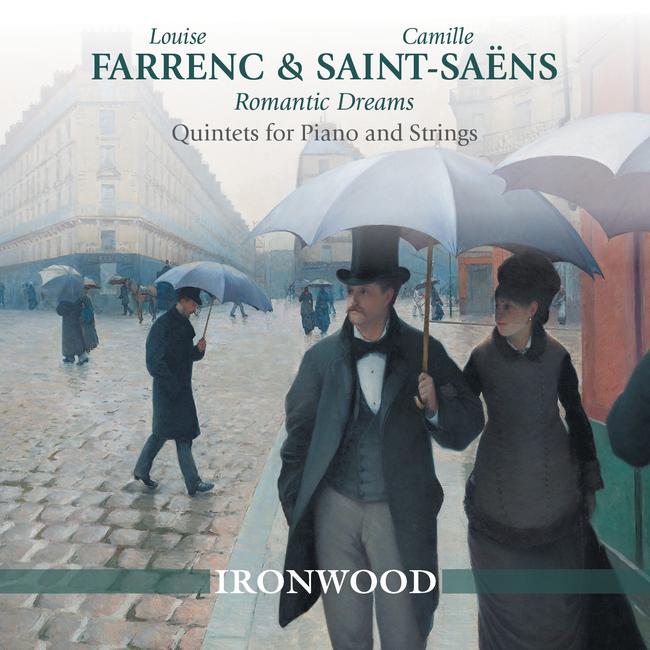
CLASSICAL
Romantic Dreams
Ironwood
ABC Classics
The latest release by this splendid period-instrument group presents a quandary. On the plus side, these are robust and committed performances from six Australian virtuosi led by pianist Neal Peres da Costa. Two piano quintets — one by Saint-Saens, the other (with contrabass) by composer Louise Farrenc — receive possibly their first recordings in recent times. But two French works from around the same period, each in four-movement quasi-symphonic form, each in the same key of A minor and lasting around 31 minutes: where does one end and the other start? Coupling quibble aside, this is a wonderful illustration of how music in a mid-19th century French salon might sound.
Vincent Plush
–
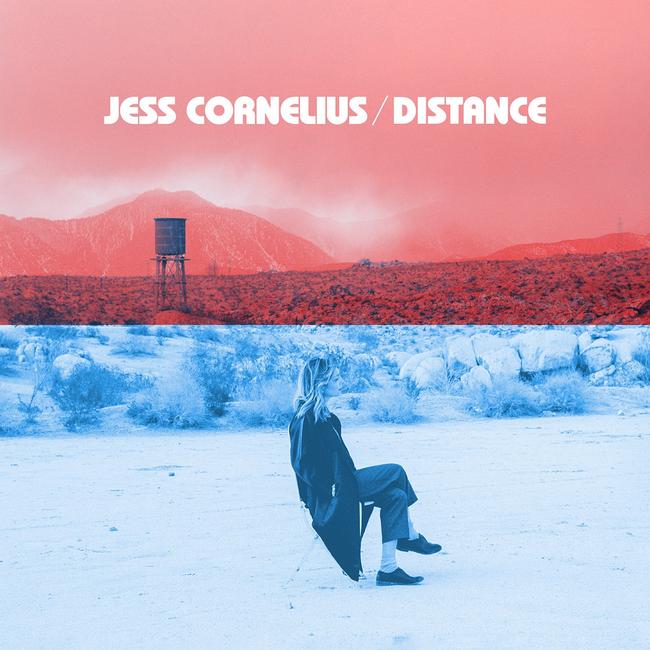
INDIE ROCK
Distance
Jess Cornelius
Part Time
Jess Cornelius may be a solo artist now, but her deep, smoky singing is instantly recognisable from her days fronting Melbourne ensemble Teeth & Tongue. Originally from NZ and now living in LA, those relocations certainly inform Distance, as does the recurrent theme of a woman approaching middle age. Cornelius became a mother only weeks before the album’s release, so the songs predate that experience. The most devastating of these sparsely arranged portraits is Body Memory, which addresses an earlier miscarriage against the contrasting perkiness of drum machine and synth. In the thick of such sobering domestic dramas, Cornelius stretches her formidable voice in new ways.
Doug Wallen


To join the conversation, please log in. Don't have an account? Register
Join the conversation, you are commenting as Logout